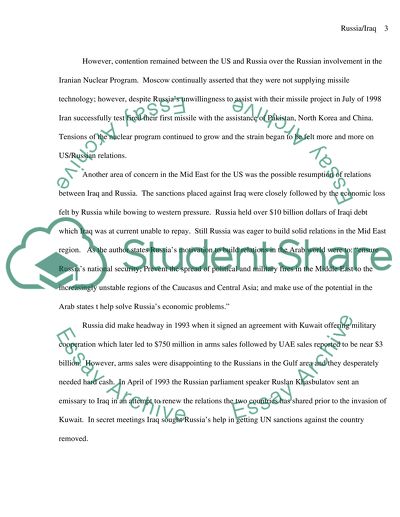Cite this document
(“Russian and Iraqi Relations Essay Example | Topics and Well Written Essays - 2000 words”, n.d.)
Retrieved from https://studentshare.org/politics/1514023-russian-and-iraqi-relations
Retrieved from https://studentshare.org/politics/1514023-russian-and-iraqi-relations
(Russian and Iraqi Relations Essay Example | Topics and Well Written Essays - 2000 Words)
https://studentshare.org/politics/1514023-russian-and-iraqi-relations.
https://studentshare.org/politics/1514023-russian-and-iraqi-relations.
“Russian and Iraqi Relations Essay Example | Topics and Well Written Essays - 2000 Words”, n.d. https://studentshare.org/politics/1514023-russian-and-iraqi-relations.


